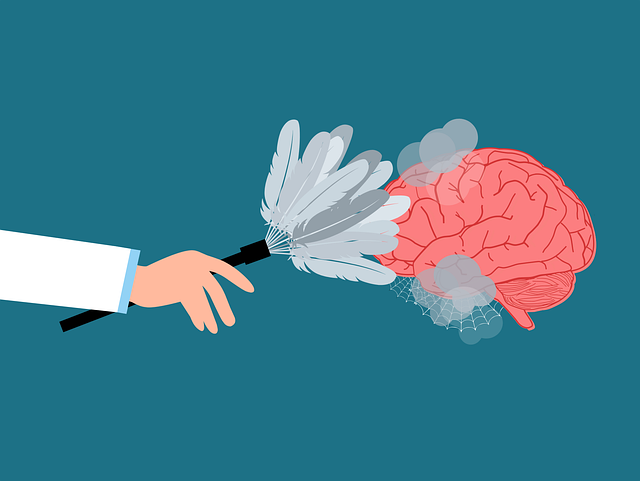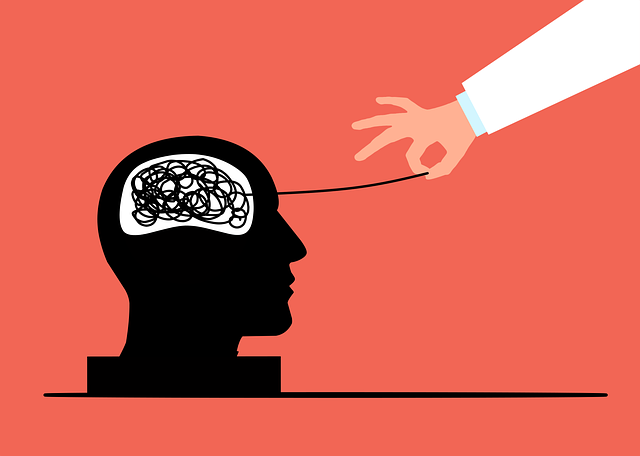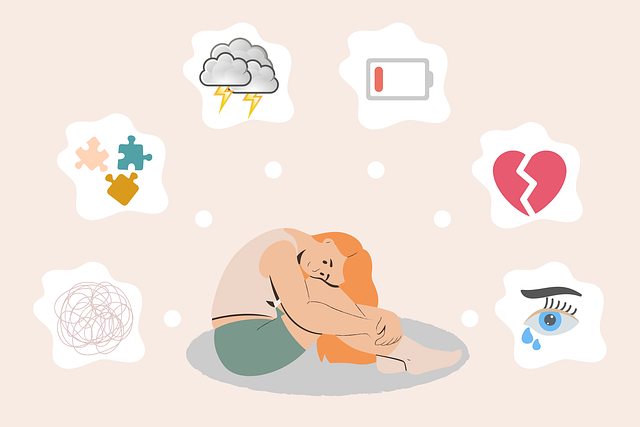Mental wellness is a key but often overlooked aspect of first responders' lives, who frequently face high-stress situations and are at risk of PTSD, anxiety, and burnout. Effective therapy, including journaling, serves as a powerful tool to manage these challenges. By providing a safe space for emotion processing, reflection, and self-awareness, journaling helps first responders process trauma, reduce stress, and maintain mental health. Tailored writing prompts focus on mindfulness, breathing, and public awareness, facilitating conversations about mental health within their communities. Integrating journaling into daily routines offers a simple yet effective way for adults and first responders to proactively engage with their mental wellness, gain insights, develop coping strategies, and advocate for open discussions around mental health.
“Enhance your mental wellness journey with the transformative power of journaling, specifically tailored for first responders. This article guides you through the profound impact of mental health on emergency service workers and introduces effective journaling techniques as a therapeutic tool. We provide a comprehensive step-by-step guide to creating your journal, followed by engaging writing prompts designed to stimulate reflection. Learn how integrating this practice into your routine can foster long-term mental wellness for adults in high-stress professions.”
- Understanding Mental Wellness and Its Impact on First Responders
- The Power of Journaling as a Therapeutic Tool
- Creating Your Journal: A Step-by-Step Guide for Adults
- Effective Writing Prompts for First Responder Reflection
- Integrating Journaling into Your Routine for Long-Term Wellbeing
Understanding Mental Wellness and Its Impact on First Responders

Mental wellness is a crucial aspect of an individual’s overall health, especially for first responders who often face high-stress situations on a daily basis. This group includes police officers, firefighters, and paramedics who are at the forefront of emergency services. Understanding mental wellness involves recognizing that it encompasses not just the absence of mental illness but also emotional well-being, psychological resilience, and healthy coping mechanisms. For first responders, maintaining these aspects is vital to ensure they can effectively perform their duties and support their colleagues.
The unique nature of their work exposes them to trauma, loss, and intense pressure, which can lead to a range of mental health challenges. Post-traumatic stress disorder (PTSD), anxiety disorders, depression, and burnout are common issues faced by these individuals. Therapy for adults first responders plays a significant role in promoting emotional well-being promotion techniques and boosting their confidence. Public awareness campaigns development is also essential to reduce the stigma surrounding mental health discussions within this profession, encouraging open conversations about coping strategies and stress management.
The Power of Journaling as a Therapeutic Tool

Journaling has emerged as a powerful therapeutic tool for adults, particularly first responders dealing with high-stress situations. It offers a safe and private space to process emotions, reflect on experiences, and gain valuable insights into one’s mental state. This simple yet profound practice can be life-changing, providing an outlet for expressing complex feelings that may otherwise remain unspoken. By putting pen to paper, individuals can begin to untangle their thoughts, identify patterns of behavior, and cultivate a deeper understanding of themselves.
For first responders like police officers, firefighters, or paramedics, who often confront traumatic events on a regular basis, journaling becomes an essential practice for depression prevention and promoting overall mental wellness. It allows them to de-escalate after intense shifts, process the emotional weight of their experiences, and develop inner strength. Moreover, regular reflection can aid in identifying potential risks associated with the job, enabling professionals to seek support or implement coping strategies before issues escalate. This proactive approach is crucial in ensuring the well-being of these individuals who dedicate themselves to serving others.
Creating Your Journal: A Step-by-Step Guide for Adults

Creating your own mental wellness journal can be a powerful tool for adults seeking therapy or first responders dealing with high-stress situations. Here’s a step-by-step guide to get you started:
1. Choose Your Journal: Select a notebook that feels comfortable and inspiring to use. Consider factors like size, paper quality, and binding style. Some people prefer a physical journal for its tactile appeal and to foster a consistent writing habit. Others might opt for a digital format for convenience and accessibility. Apps designed for journaling or therapy, such as Day One or Journal, can offer structured prompts tailored towards mental wellness.
2. Set Clear Intentions: Before you begin, take a moment to reflect on your goals. Are you using journaling as a form of self-care, mood tracking, or personal growth? Setting clear intentions will guide the type of content and exercises you incorporate. For example, if stress management is your focus, you might include daily reflections on what caused stress and coping strategies used. If depression prevention is a priority, consider prompts that explore positive experiences, gratitude, and strengths.
For first responders or mental health professionals, incorporating risk management planning into journaling can be beneficial. This might involve setting aside time for self-care, reflecting on boundary-setting techniques, and documenting personal resilience. Depression prevention strategies such as cognitive reframing exercises or exploring emotional triggers can also be valuable tools within a structured journal format. Engage in regular stress management workshops organization sessions to refresh your practices and ensure your mental wellness journey stays dynamic and effective.
Effective Writing Prompts for First Responder Reflection

Journaling can be a powerful tool for first responders to process their experiences and emotions. Effective writing prompts tailored to this specific group can help them reflect on their mental wellness. Prompts such as “Describe a moment when you felt most present and grounded after a stressful call” encourage mindfulness, which is essential for managing the unique challenges of their profession. By fostering self-awareness, these prompts can facilitate conversations with therapists or peers, enhancing the therapeutic process for adults in first response roles.
Incorporating practices like mindfulness meditation into their journaling routine can further benefit first responders. Prompts might guide them to explore breathing techniques used during high-stress situations and how they can apply them to regain composure. Public awareness campaigns development is another relevant topic, as prompts could invite them to reflect on the impact of sharing their stories, potentially boosting their confidence in advocating for mental health discussions within their communities.
Integrating Journaling into Your Routine for Long-Term Wellbeing

Integrating journaling into your daily routine can be a powerful tool for promoting long-term mental wellness, especially for adults and first responders who often face unique challenges. This practice allows individuals to process their thoughts, emotions, and experiences in a safe and private space, fostering self-reflection and personal growth. By dedicating just a few minutes each day to write down their feelings, individuals can gain valuable insights into their mindset and develop healthier coping mechanisms.
Journaling offers a form of therapy that is accessible and adaptable to everyone’s needs. It encourages individuals to engage with their mental health proactively, providing an outlet for processing stress, anxiety, or trauma. For first responders, who often bear witness to difficult situations, this practice can serve as a form of self-care, helping them manage the emotional weight of their work. Through regular reflection, they can enhance their resilience and maintain a sense of balance, ensuring that their mental wellness is prioritized alongside their professional duties.
Mental wellness journaling offers a powerful and accessible therapy for adults, especially first responders dealing with the unique challenges of their profession. By integrating reflective writing into their daily routines, individuals can process trauma, manage stress, and cultivate resilience. This article has provided practical guidance on creating a journaling practice tailored to the needs of first responders, empowering them to prioritize their mental health and foster long-term wellbeing.














